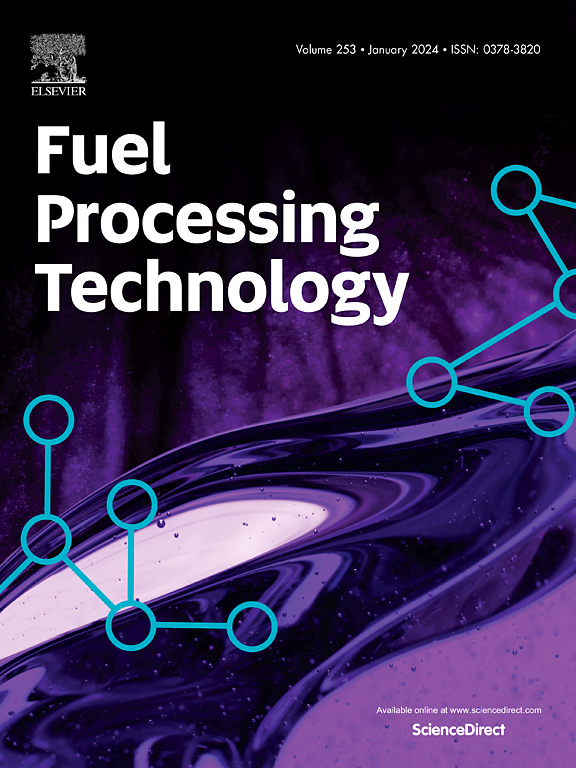Effect of sodium promotion on zinc-ferrite catalysts for CO and CO2 co-conversion: Insights from in situ and theoretical studies
IF 7.2
2区 工程技术
Q1 CHEMISTRY, APPLIED
引用次数: 0
Abstract
This study investigates the influence of sodium (Na) on the co-conversion of CO and CO2 over Na-promoted zinc-ferrite catalysts. Using a combination of H2-TPR, CO-TPR, in situ Raman spectroscopy, calorimetry, and density functional theory (DFT) calculations, we demonstrate that Na significantly modifies catalyst performance. Even at low Na levels (Na/Fe = 0.06), CO conversion is accelerated by up to 120 times compared to CO2, while methanation is suppressed and olefin production is enhanced. However, excess Na leads to graphite formation and coke deposition. In situ Raman analysis reveals the transformation of Fe oxides into Fe carbides in Na-doped catalysts, while calorimetry indicates a reduced strength in the exothermicity associated with suppressed methanation and enhanced C2+ hydrocarbon formation. DFT calculations further demonstrate that high Na content strengthens adsorption, particularly for CO2 and 1-hexene, increasing the likelihood of coke formation. These findings emphasize the key role of Na in modifying catalytic activity and offer valuable insights for optimizing CO/CO2 co-conversion processes.
钠促进对锌-铁氧体CO和CO2共转化催化剂的影响:来自原位和理论研究的见解
研究了钠(Na)对锌-铁氧体催化剂上CO和CO2共转化的影响。通过结合H2-TPR、CO-TPR、原位拉曼光谱、量热法和密度泛函理论(DFT)计算,我们证明了Na显著改变了催化剂的性能。即使在低Na水平下(Na/Fe = 0.06), CO的转化速度也比CO2加快了120倍,同时抑制了甲烷化,提高了烯烃产量。然而,过量的钠会导致石墨的形成和焦炭的沉积。原位拉曼分析揭示了na掺杂催化剂中铁氧化物向铁碳化物的转变,而量热分析表明放热强度降低与抑制甲烷化和增强C2+碳氢化合物形成有关。DFT计算进一步表明,高Na含量加强了吸附,特别是对CO2和1-己烯的吸附,增加了形成焦炭的可能性。这些发现强调了Na在修饰催化活性中的关键作用,并为优化CO/CO2共转化过程提供了有价值的见解。
本文章由计算机程序翻译,如有差异,请以英文原文为准。
求助全文
约1分钟内获得全文
求助全文
来源期刊

Fuel Processing Technology
工程技术-工程:化工
CiteScore
13.20
自引率
9.30%
发文量
398
审稿时长
26 days
期刊介绍:
Fuel Processing Technology (FPT) deals with the scientific and technological aspects of converting fossil and renewable resources to clean fuels, value-added chemicals, fuel-related advanced carbon materials and by-products. In addition to the traditional non-nuclear fossil fuels, biomass and wastes, papers on the integration of renewables such as solar and wind energy and energy storage into the fuel processing processes, as well as papers on the production and conversion of non-carbon-containing fuels such as hydrogen and ammonia, are also welcome. While chemical conversion is emphasized, papers on advanced physical conversion processes are also considered for publication in FPT. Papers on the fundamental aspects of fuel structure and properties will also be considered.
 求助内容:
求助内容: 应助结果提醒方式:
应助结果提醒方式:


